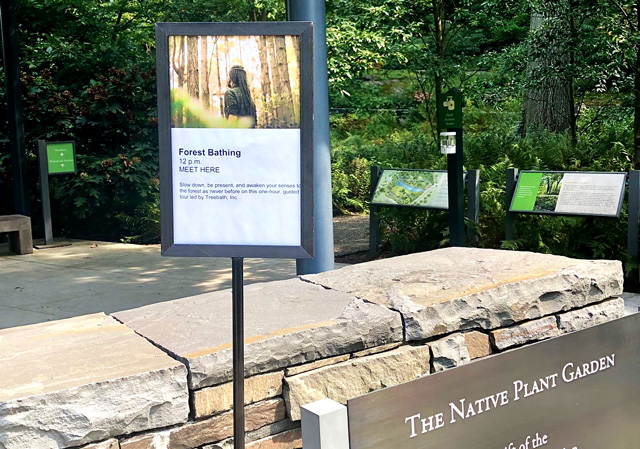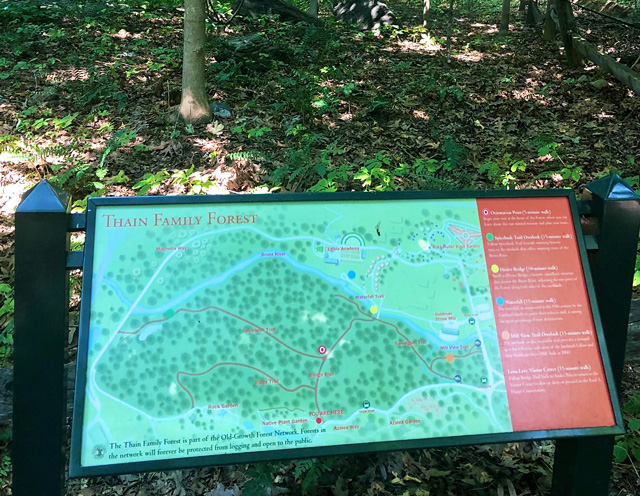Forest Bathing to Clear Away Stress

By Giulia Gionta
“Don’t forget to lather your soul,” joked one participant in a forest bathing event before setting off into the Thain Family Forest at the New York Botanical Gardens. Forest bathing was developed and coined in Japan as shinrin-yoku in 1982. Its roots are grounded in traditional Shinto and Buddhist practices with high reverence for nature.
“We’re going to engage all of our senses in this present moment and see what we can learn from the forest,” said Joan Kane, a Treebath, Inc. expert who is leading the group in the practice of forest bathing. Kane explains that silent mindfulness is key to the practice.
“Give yourself permission to shut off your phone and be without it for the next hour,” said Kane.

“Without any distractions on the walk and by learning to focus on where I am, made me come back to the present moment and keep my anxieties at bay,” said Olivia Esmello. She was returning home to Chicago the following day and was anxious about flying. During a visit to the Botanical Gardens she decided spontaneously to attend the class for some anxiety relief.
The creation of forest therapy was in response to a public health crisis in Japan: high rates of stress and spiking diagnoses of auto-immune diseases were growing in urban cities.
“We’re employing all our senses to let the forest into ourselves,” said Kane. Halting under a canopied section of trees, Kane invites the group to comfortably close their eyes. She then guides them through experiencing the forest through each sense. She even insists it is possible to taste the forest by simply breathing through an open mouth.

Tomohide Akiyama was Japan’s forestry administrator of the Japanese Ministry of Agriculture and coined the term shinrin-yoku. With scientific knowledge of phytoncides, which are organic compounds excreted by plants and trees, he pioneered the studying of their immune-boosting actions.
In a study published by Environmental Health and Preventative Medicine in 2019, the psychological and physiological effects of forest bathing were studied on a group of working age people, with and without depressive tendencies. The results indicate that a session of two hours of forest bathing as part of a one-day forest excursion can lead to improvements in physiological and psychological health demonstrated through decrease in blood pressure and alleviated negative psychological parameters after forest bathing.
The New York State Department of Environmental Conservation lists the following health benefits of trees.
Exposure to forests and trees:
- boosts the immune system
- lowers blood pressure
- reduces stress
- improves mood
- increases ability to focus, even in children with ADHD
- accelerates recovery from surgery or illness
- increases energy level
- improves sleep
“I wouldn’t have thought to look up at the leaves high on the tree,” said one attendee, as they shared the subtleties noticed after a period of guided mindfulness. “The sunlight is dancing on them.”
Intrinsic knowledge of the healing capabilities of nature dates back to ancient times, and in Japan, respect for nature is fundamental to the culture.

The New York Botanical Gardens of the Bronx is itself a haven amidst the urban jungle that is New York City. Purposeful disengagement from mental chatter and meditation on natural beauty works magic for well-being.
“Forests hold wisdom accessible only when you’re quiet enough to listen,” said Kane.
Saved under Culture, Featured Slide
